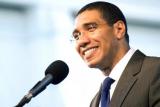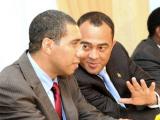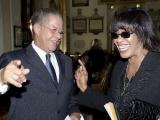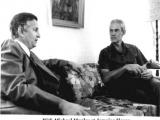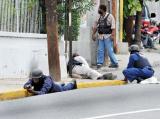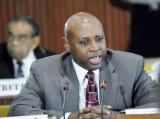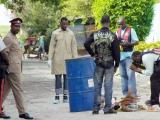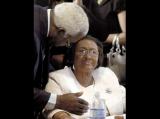Columns By Category
Popular Articles
- THE REALITY OF TACKY AND SAM SHARPE
- PLEASE DON’T BETRAY US AGAIN POLITICIANS
- CRY, MY MURDEROUS COUNTRY
- MODERNIZING THE PNP: VERSION.2020
- IS THE EXCHANGE RATE ON TARGET OR IS IT A WHOPPER?
- CARICOM: BEACON OF DEMOCRACY OR COWARDLY DISGRACE?
- DEMOCRACY PREVAILS IN THE UNITED STATES
- THE CRIME STATISTICS SPEAK FOR THEMSELVES
- PETROJAM, OIL PRICES, AND THE $7 TAX
- Kevin O'Brien Chang | Brains, not brutality – smart(phone) crime fighting
- TERRORISM IN JAMAICA
- STOP CURRENCY CRISIS TALK
- 'CASTIGATED KD' AND THE 9 YEAR WONDER
- GET PAST MERE TALK ON DONS AND GARRISONS
- LOW VOTER TURNOUT MYTHS AND ELECTION PREDICTIONS
- HOW GREAT CAN BROGAD BE?
- PNP WAS SOCIALIST FROM THE START
- AN AGE AND GENDER RE-ALIGNMENT ELECTION?
- Most influential Jamaican of 2010-2019?
- NO GAYLE, NO RUSSELL, NO TALLAWAHS
Politics
The Garrisons of Gordon House
- Article
- November 13, 2011
- No comments
"Both political parties have it within them to mutually agree to end the social construct of the garrison ... . Let us start the process by getting the leaders to walk together in these areas of exclusion ... . Hopefully, this small step will lead to other steps that will eventually remove garrisons from our political landscape." - Andrew Holness, October 23
Andrew Holness' potentially historic end-garrison-politics inauguration address has spurred much debate about what a garrison is, which constituencies are garrisons, and even if garrisons exist. Few have referenced probably the most significant document produced on the topic, namely, the 1997 Report of the National Committee on Political Tribalism, often called the Kerr Garrison Report.
A Chance for Transformation
- Article
- October 16, 2011
- No comments
In 10 days, Bruce Golding advanced Jamaican politics 10 years. He resigned as prime minister on September 25, then threw his weight behind the youngsters in his party, which led to 39-year-old Andrew Holness being proclaimed prime minister-designate on October 3.
Listening to the People
- Article
- October 2, 2011
- No comments
Democracy is about listening to the people, and Bruce Golding has listened to the people. For the last 18 months or so, the polls have shown that Jamaicans do not want him as prime minister. No doubt, at first, he hoped it was a temporary thing which time and hard work would change. But poll after poll showed the populace's sentiments had hardened, and the message remained the same - Bruce, you must go. And now he is doing so.
Views of a Non-Tribal Jamaican
- Article
- September 18, 2011
- No comments
A few months ago, a gentleman we shall call Lancelot Murray (not his real name) telephoned me. He said he heard me on TV and looked up my number in the phone book. He described himself as someone who loved politics and followed it closely.
We had a long talk, and then I said, "Your views are very interesting. Why don't you write down all you are telling me and have me run it as a column?" He agreed. Things take time, and this week he sent it to me. So me get it, so me give it.
Golding's Record in Perspective
- Article
- September 4, 2011
- No comments
'There are lies, damned lies and statistics,' goes one argument. 'It's easy to lie with statistics, but it's easier to lie without them,' says another. At any rate, numbers only mean anything when put in perspective, especially economic numbers.
Jamaica having 2.5 per cent inflation from January to June of this year, and our economy growing by 1.5 per cent in the first two quarters, doesn't really ring bells. But Jamaica having both lower inflation and higher GDP growth than the United States for the first half of 2011 makes you sit up and pay attention. When has this happened before, if ever? (Sources: BOJ, USBEA)
Political Perception and Numerical Reality
- Article
- July 31, 2011
- No comments
Of the 10 contested general elections since Independence, the PNP has won six, outpolling the JLP by an average of 6.3 points. Which gives statistical support to the adage that 'Jamaica is PNP country'.
Dig a bit deeper and the equation shifts. Under Edward Seaga, the JLP lost five of six contested elections by an average margin of 8.9 points. The other four elections saw three JLP wins, with an overall PNP margin of 2.4 points - 'within the three per cent margin of error', as pollsters would say.
Tough on Crime, Tough on the Causes of Crime
- Article
- June 12, 2011
- No comments
From May 23-25, 2010, the Jamaican populace cowered as armed gangsters torched police stations and attacked large swathes of the capital, while the security forces struggled to regain control. There was a real fear of violence exploding across the island and the very foundations of the state seemed at risk. Who could have imagined then that murders would fall by roughly 40 per cent over the next year?
Manatt Facts and Fiction
- Article
- April 10, 2011
- No comments
The famous Japanese story, 'In a Grove', presents seven varying accounts of a samurai's death. Each chapter both clarifies and obfuscates what the reader knows, creating a confused vision of events that brings into question the human capacity to perceive and transmit objective truth.
This probably sounds familiar to anyone who followed the Dudus-Manatt enquiry. Not only did witnesses often contradict each other, but media coverage was extremely inconsistent, often highlighting trivialities and ignoring crucial pieces of evidence. No wonder the majority of Jamaicans, who followed events mainly through radio and TV clips and newspaper reports, could not make heads or tails of what took place, and mostly dismissed it as 'a waste of time'.
Murder Tipping Point?
- Article
- April 3, 2011
- No comments
Lots of countries suppress bad news and exaggerate good news so as to put on a 'happy face' to the world. Jamaica must be the only place on the planet where the media trumpet national misfortunes and hide positive deve-lopments. Our press constantly refers to 73 persons dying in last May's Tivoli Gardens incursion, but remains silent about the subsequent 37 per cent decline in murders, which has, in effect, 'saved' more than 540 lives.
How can anyone who truly loves this country not exult when they see numbers as these?
CSI Manatt in Wonderland
- Article
- March 20, 2011
- No comments
A phantom email. A mystery letter. Obeah envelopes. St Patrick's Day at the Manatt enquiry was straight out of Alice in Wonderland.
Perhaps the strangest turn was the reaction to the reply from Manatt to a letter sent by Attorney General Dorothy Lightbourne. Now, considering this entire thing is basically an enquiry into Manatt's role in the Christopher 'Dudus' Coke extradition, you would think all parties would be interested in anything the firm had to say. But the objection to the reading of this reply by Oliver Smith, Solicitor General Douglas Leys' lawyer, was supported by K.D. Knight.

